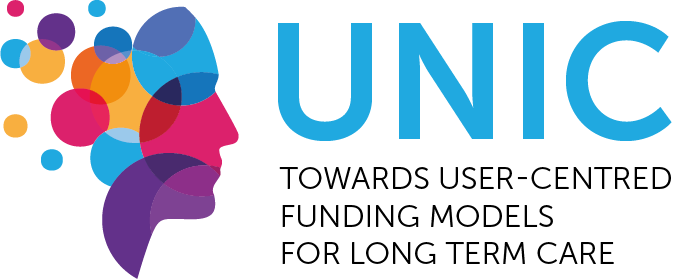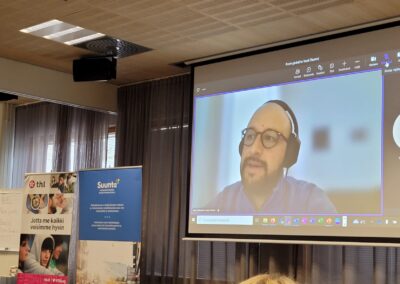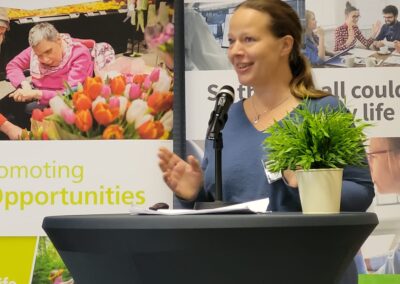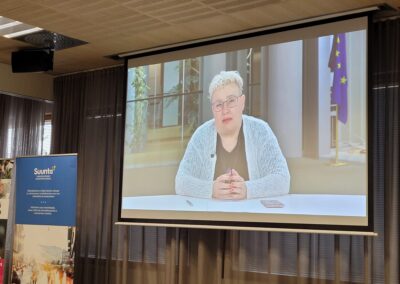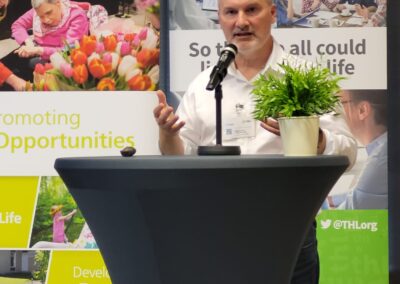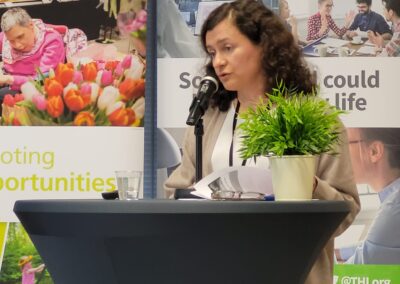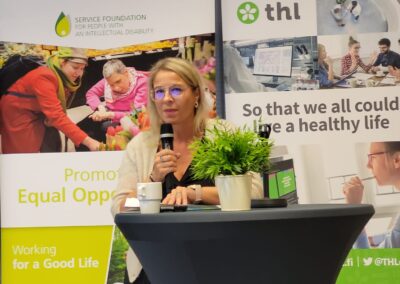UNIC-project event on 1.11.2022 in Helsinki presented global and local actions towards user centered support and funding models as well as the UNIC-project and it´s tools to the Finnish stakeholders.
UNIC-project is a European project that develops tools to help service users, service providers and public authorities to implement a user-centred funding model in long-term care and support. In order to create user-centered support we need strong collaboration and committed stakeholders. UNIC-project event in Finland presented the key stakeholders as well as global and local actions towards shared goals.
Kirsi Konola (KVPS) emphasized the human rights and active citizenship when developing long-term care and support. Services must be able to respond to changing needs and life situations.
Juan S. Jaime Pardo (Office of the United Nations High Commissioner for Human Rights) noted that the pilars of global care are not coordinated to community inclusion. States play a fundamental role in building back better after the covid-pandemic. Care must be reframed from care models to human rights model.
Konstantina Leventi (EASPD) spoke about the rights-based approach to social support where the UN CRPD is the gamechanger. Important initiatives such as EU Care Strategy and EU Disability Rights Strategy provides guidance to Member States on the improvement of community-based services.
Sirpa Pietikäinen (MEP) presented the EU Care Strategy and it´s four pillars: care needs to be affordable and available, with high quality, adequate funding and skilled carers. Good care is a basic right and this right cannot be taken or given, it is.
Simon Duffy (Citizen Network) highlighted the role of the self-advocates. Advocates must network and build communities. Peer support is one of the key success factors when creating successful transitions to self-direction and community-based support.
Stina Sjöblom (Finnish Institute for Health and Welfare) presented the Personal Budget Project in Finland and the new Disability Services Act. The organising of needs-based services to all persons with various functional limitations, but even a greater variety in capabilities and dreams, requires that the possibilities within our welfare system are utilised well.
Sari Levoska & Nina Lukkarinen (Essote) spoke about the regional experiences of personal budgeting. In Essote region personal budgeting is an alternative way of organizing disability services for persons, whom the traditional ways of organizing services do not adequately meet individual service needs. Personal budgets makes it possible to consider person’s life situation more comprehensively and service users experiences show that personal budgeting is strengthening self-determination and increasing capacities of the person.
Sanna Ahola (Human Rights Centre) presented the user centered care in the context of human fundamental rights. It is important that there is an understanding of the general characteristics of belonging for example to a certain age group or having certain background. But, in the end, everyone’s life and thus everyone’s needs are unique, and the service system should be able to respond to them.
Päivi Nurmi-Koikkalainen (Finnish Institute for Health and Welfare) closed the event with important message: it is important to meet each other and to collaborate. Developing support and services must be based on human rights. Much has been done, much remains to be done, but we also have many opportunities, if we listen to each other.
Petra Rantamäki & Elisa Nappa, KVPS Finland
Videos of the event in Finnish and in English:
https://www.youtube.com/playlist?list=PLpMOESvbhrQP-z3cHwsyIB9sjNnXjyBH3
